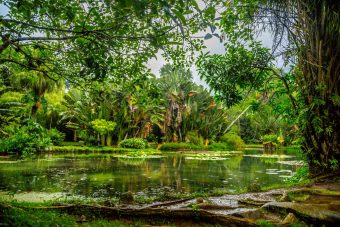A green future is on the horizon! We will drive electric cars, solar panels will be sprinkled on our roofs, and the picturesque scenes of fields and meadows will be completed by wind farms that turn slowly and as if telling us “there will be enough clean electricity for everyone”.
Anyone can easily fall in love with this romantic picture. Just imagine – no more air pollution, no traffic noise, electricity bills are getting lower and living standards are getting better.
Only, will this romantic picture escape us?
We know that there is no energy transition without key raw materials used for the production of batteries, solar panels, wind generators… The demand for lithium, cobalt and other precious resources skyrocketed after the world market cried out for green technologies.
And so mining took on a new dimension and is now among the key players in the climate neutrality game. But when mining is in play, ecology must not be on the bench.
A new study, published by researchers at the University of Cambridge, warns us that mining activities “in the service of the energy transition”, as well as oil and gas extraction, threaten the survival of 4,642 species of vertebrates and many more invertebrates and plants.
The greatest risk to species comes from the mining of materials that are fundamental to our clean energy transition. These mines are often located in the world’s most valuable biodiversity hotspots that represent unique habitats for many species on the planet.
Also, the threat to nature is not limited to the physical locations of mines. Species that live over long distances may also be affected by polluted watercourses or deforestation to build necessary roads and other infrastructure.
Among all vertebrate species, fish are particularly at risk from mining (as many as 2,053 species); followed by reptiles, amphibians, birds and mammals. The level of threat appears to be related to where a particular species lives and its lifestyle: species that inhabit freshwater habitats and species with small ranges are particularly at risk.
It is certain that new mines will only be opened, and it is up to us to choose what is more important to us – an accelerated energy transition or the protection of nature and species?
Although states generally impose stricter environmental criteria for the entire industry, including mining, I would not rely too much on it. In critical raw materials, many countries and companies see a unique opportunity for economic growth, and it is clear that all these environmental protection measures greatly reduce the productivity of mines.
Someone might say that the destruction of nature and the loss of certain species is the price we have to pay in order to finally get rid of fossil fuels and step into a greener future. After all, man has always cleared forests for the expansion of cities and agriculture, so why should mines be an exception?

But this must not be an excuse for us. If we are already talking about a green future, then we have to be better than the generations that brought the planet to the boiling point.
We will never get out of the climate crisis if we continue to destroy nature and biodiversity. Moreover, long-term mining for the purpose of energy transition can put us in an even worse situation than fossil fuels.
And that’s why, if we have to choose between the mine and nature – let’s choose carefully.
Milena Maglovski
Source: energetskiportal.rs


